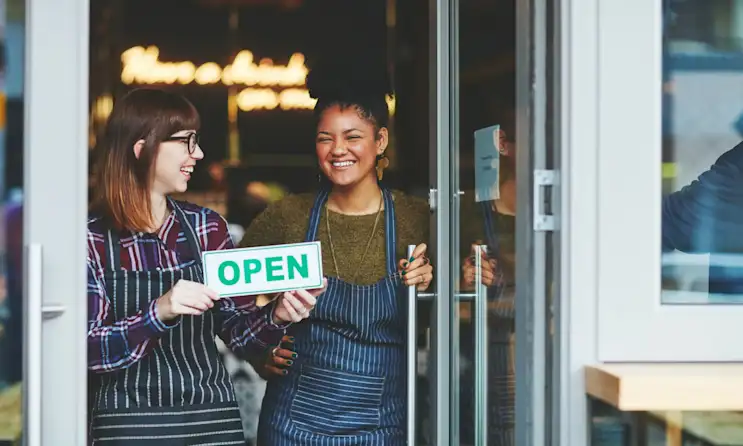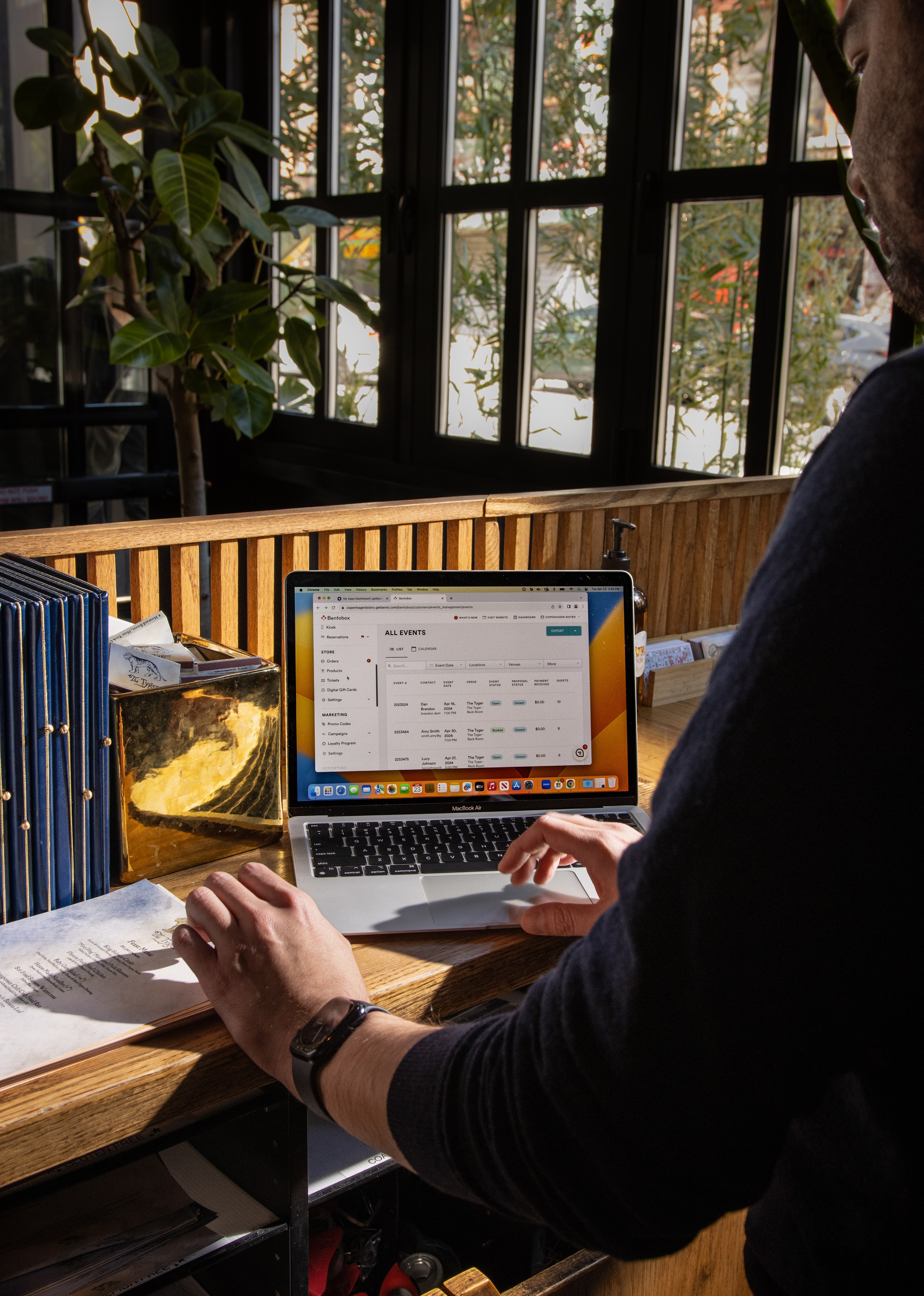New Openings
How to Navigate Restaurant Licenses and Permits
Learn about the most important restaurant licenses and permits to obtain, and how to be approved as quickly as possible.
Restaurants bring people together for delicious meals and joyous occasions, but before restaurants can invite guests through their doors, they need the right licenses and permits to operate.
Due to strict regulation, restaurants might require more than a dozen licenses and permits to legally operate. A restaurant can serve hundreds or even thousands of guests each day in just one location. Given some of the risks that come with preparing food and drink – ranging from foodborne illnesses to serving too much alcohol – it makes sense that the restaurant industry requires these precautions.
Like all businesses in the United States, restaurants require standard documentation like a business license. However, they may also require other permits and licenses like a pool table permit and a valet parking permit. Failing to procure these licenses before opening can result in fines of thousands of dollars, or even the closure of a restaurant.
We’ve provided an overview of the most common and essential restaurant licenses and permits for new restaurant owners. However, it’s important to note that each state (and sometimes city) requires specific licenses and permits for that jurisdiction. It’s recommended to consult with counsel and/or local legislature during the process of opening a restaurant to ensure the correct permits and licenses are obtained.

BentoBox Marketing & Commerce Platform
Opening a New Restaurant?
Help customers find you. 80% of diners search online before visiting a restaurant.
What are Restaurant Licenses?
Restaurant licenses and restaurant permits are government-issued documentation and acknowledgment of a restaurant’s existence and its ability to perform certain tasks. They legitimize the restaurant as an actual business and ensure that anyone handling, preparing or serving food and drink does so properly and in a safe environment. Without the proper permits, restaurants could be forced to close, while owners could face fines or even criminal charges. Even if the restaurant does survive a licensing issue, its reputation may be irreversibly damaged in its community – especially if any harm or illness befalls a guest due to improper licensure.
Below are twelve restaurant permits and licenses that restaurants will (or may) need to get in order to legally operate.
12 Restaurant Permits and Licenses
1. Business License
The business license is the most basic and mandatory license for a restaurant business. It’s a formal acknowledgment of the restaurant by the local government.
A business license must be procured locally and will range in cost based on the jurisdiction. Searching “business license for [state or city name]” on Google should produce the best website to learn about (or even apply for) a business license in the area. Typically, the price of a business license is around $50, but the cost structure does vary.
2. Food Service License
A food service license (or in some places, a food service permit) is exactly what it sounds like. A restaurant needs one in order to legally sell and serve food as a business.
Food service permits are earned after a health inspector approves the restaurant’s safety. By granting a food service license, that inspector is certifying that the restaurant meets local food safety regulations.
Provided by the local government (typically the local department of health), a food service permit tends to cost a few hundred dollars or more. For example, a food service permit requires a $200-$300 minimum payment in Massachusetts and will cost $280 in New York City. Food service licenses require renewal and can be revoked if a health inspection is failed.
3. Employee Health Permit
Also called a food handler’s permit, this permit is obtained by restaurant employees who handle, store and prepare food. Employees must demonstrate their understanding of food safety principles to obtain this permit – usually by taking a course and an exam through a facilitator like ServSafe.
Employee health permit requirements vary by state. For example, in Arkansas, only a food manager is required to demonstrate knowledge of safe food handling, but in California, all employees who handle food must obtain a training certificate within 10-30 days of beginning employment. Costs vary by location and the type of permit. Some cost less than $20 and others cost several hundred. Regardless of the price, the restaurant is the one to cover these mandatory costs for their employees.
4. Seller’s Permit
Also called a sales tax permit, a seller’s permit allows the business to collect sales tax in the state in which it operates.
Like all restaurant licenses and permits on this list, this one is state-specific, since not all states have a sales tax. While most states do not charge for a sales tax permit, some do, and some also require a security deposit in the event the restaurant business closes before any owed taxes are paid.
5. Resale Permit
A resale permit allows restaurants to purchase nontaxable goods at wholesale, which will then be resold in the restaurant. With this permit, restaurants avoid the double tax and only pay tax on what is purchased from the business. For restaurants, this permit keeps food costs low by not paying sales tax on inventory.
Like the seller’s permit, this permit is contingent on whether or not the restaurant’s state has a sales tax. Resale permits are either free (like in North Carolina) or usually less than $100.
6. Liquor License
Liquor licenses are only required for restaurants that will be serving alcohol, and it’s important to note there are different types of liquor licenses.
Bars and restaurants that want to offer a full bar will need either a tavern or restaurant liquor license, with the former for businesses that make more than 50% of their revenue from alcohol. Those not looking to sell hard alcohol can manage with a beer and wine liquor license.
The choice of liquor license type also has an impact on cost – for example, in Boston, a beer and wine license costs as little as $1,900, while a full liquor license costs $3,500.
Liquor licenses can take a notoriously long time to obtain, so it’s worth starting the search for one as soon as possible and reaching out to the state’s Alcohol Beverage Control commission. It’s also worth looking into purchasing a liquor license from a closing restaurant to expedite the process.
These state guides are a good place to start:
7. Music License
Music licensing is one of the more complicated subjects when it comes to legality. The good news is that restaurants that are less than 3,750 square feet are exempt from music licensing requirements (so long as the music is playing from the radio or from a television).
All other uses of music in a restaurant could require a music license, which means shift managers can’t hook up their favorite Spotify playlist even though they’re legally paying for a streaming subscription.
Instead, restaurants need licenses from what are known as performance rights organizations (PROs), which pay royalties to artists who are represented in them. The four biggest performance rights organizations are:
- American Society of Composers, Authors and Publishers (ASCAP).
- Broadcast Music International (BMI).
- Global Music Rights (GMR).
- Society of European Stage Authors and Composers (SESAC).
The fees for each of these licenses range in the hundreds of dollars, and to be safe, a license from each major PRO is recommended, since different artists are covered under different PROs. Getting a music license for a restaurant helps avoid fines, which can cost a restaurant caught playing unlicensed music more than $100,000.
8. Certificate of Occupancy
Just like how a food service license ensures a restaurant’s food is safe to eat, a certificate of occupancy ensures the building is safe to enter and operate a restaurant business in.
Obtaining this permit requires passing a building inspection from the local zoning department to certify the building is up to code when it comes to fire exits, wiring and other structural concerns.
Certificate of occupancy costs are generally low. For example, in Chesapeake, Virginia, the fee is an affordable $30, but fees can be higher in bigger cities.
9. Sign Permit
A quickly forgotten restaurant permit, the sign permit allows a restaurant to display signage for the business outside the restaurant. Applying for a sign permit may require mockups of the design, sign dimensions and details on any lighting and wiring needed to illuminate the sign.
Sign permits are issued in the city or town in which the restaurant operates and starts around $100, with additional fees applying to larger-sized signs. In Seattle, for instance, a sign up to 32 square feet costs $153, but more than $2,200 for 650 square feet.
10. Pool Table Permit
For bars that want to open the floor up to billiards, a pool table permit might be required. Pool table permits are among the least expensive permits a restaurant may need to acquire. For example, in Portland, Oregon, a permit for up to three pool tables will cost just $50 annually. Other cities and states will have their own regulations.
11. Dumpster Placement Permit
Many restaurants utilize their own dumpster, and doing so may require a dumpster permit. The necessity for restaurant dumpster placement permits varies by location. While Cambridge, Massachusetts requires dumpster permits for food service businesses, many cities do not. It’s best to look up whether or not the city in which the restaurant operates requires this permit.
12. Valet Parking Permit
More upscale restaurants – particularly those in cities – might appeal to a wider crowd by offering valet parking, which too requires a permit. Applying for a valet parking permit will usually require a detailed overview of the valet parking route and location.
Like with a dumpster placement permit, the need and price for a valet parking permit varies based on location. As an example, Los Angeles requires $427 in application processing fees and an additional $660 for the valet parking zone installation. Other jurisdictions might charge by square foot and require periodic renewal.

How to Get a Restaurant License
Some restaurants will require more than a dozen licenses and permits. The process is time-consuming, can be expensive, and requires filling out forms over and over again with the same information.
Still, the restaurant’s opening day is on the horizon, and once this process is complete, the dream is one step closer.
These tips can expedite the restaurant permit hunt and get doors open sooner than later.
1. Obtain an Employer Identification Number
An employer identification number (EIN) isn’t technically a restaurant license, but it’s still necessary to get one as a restaurant.
An EIN provides a restaurant business with a federal tax ID, making it legal to hire and pay employees. An EIN may also be required from the state in which the restaurant does business.
Because the restaurant cannot legally employ people without an EIN, getting one is an essential step in the restaurant opening process.
2. Dont Wait to Apply
Restaurant licenses and permits can take weeks or even months for approval. An EIN, for example, takes an average of four to five weeks to obtain according to the IRS, while liquor licenses can take up to a year to procure.
The restaurant opening process can be a lengthy one, and getting the paperwork started as soon as possible for these licenses can save time in the homestretch (and even avoid a delayed restaurant opening).
3. Work With Local Offices
Every restaurant’s license costs and requirements will depend entirely on where the restaurant is located. While all restaurants need a business license and employee health permits, not all require seller’s permits. Before applying, it’s worth visiting the website for the state and city where the restaurant will operate for a list of required permits. It may also be worth working with a local consultant or lawyer to cover every base.
4. File for a Trademark
One final non-permit to go over is the trademark. To avoid worrying about a competitor ripping off the restaurant’s brand, consider applying for a trademark. While not required, a trademark gives the original restaurant the advantage in the event the business’s brand is infringed upon. It also may be worth searching the existing trademark database to ensure the restaurant’s name won’t be infringing on another business’s.
What to Do Now
Waiting for restaurant licenses and permits to be approved can take a while, but every day is progress towards finally getting the doors open and being able to serve guests in a safe, fun environment.
While waiting for these applications to be processed, there’s still so much more to do, like finalizing out your restaurant business plan, finding funding for the restaurant or setting up your restaurant’s website.
BentoBox can help a restaurant get its footing online for optimized discoverability before and after it opens to the public. Get started with a free demo.

BentoBox Marketing & Commerce Platform
Deliver Smarter Hospitality
Want to stand out online, bring in more money, engage your diners, and streamline operations?
Recommended

New Openings
How to Open a Restaurant + Free Business Plan Template
February 10, 2022
A step-by-step guide to planning, financing, staffing, stocking and marketing a new restaurant for its debut.

New Openings
How to Market a New Restaurant Opening
July 1, 2021
From the website and social media to building buzz with a PR agency, here's how you can set yourself up for success.

New Openings
How to Navigate Restaurant Real Estate and Leases
June 29, 2021
A guide through the complexity of restaurant leases for both new and existing operators.

